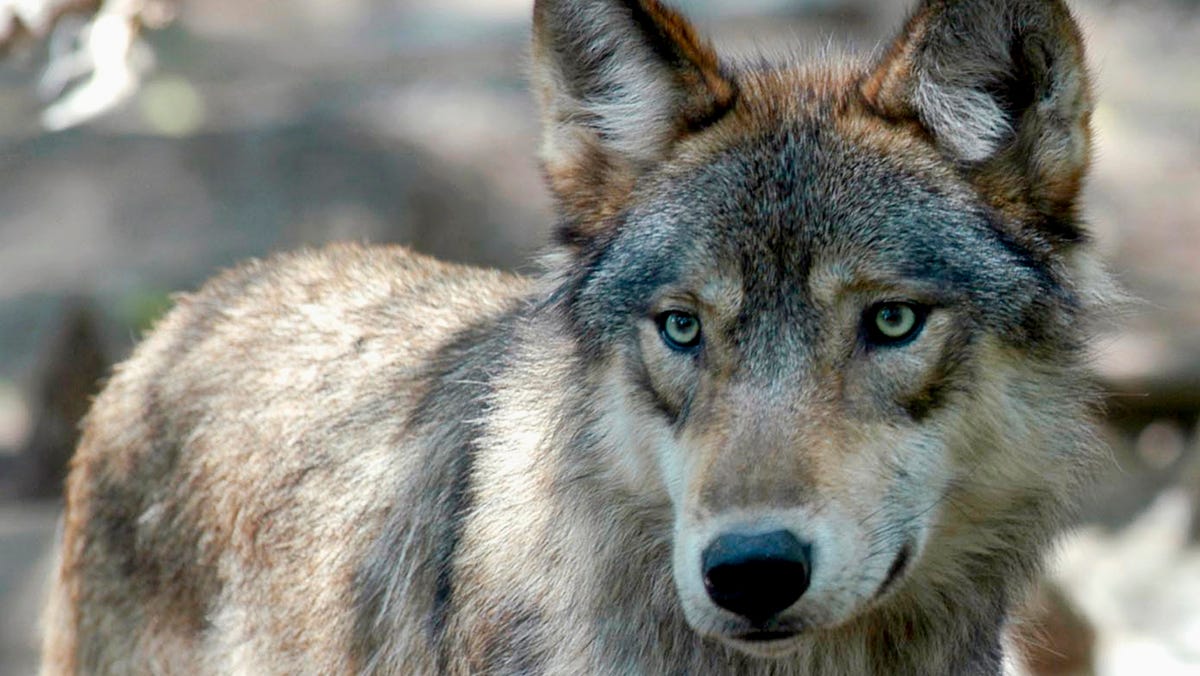A wolf was lethally removed from Isle Royale National Park after reports of movement into human campgrounds to obtain food.
The park removed one of at least two wolves that were seen dragging food storage bags and backpacks away from campgrounds multiple times, according to a release from Isle Royale National Park.
Officials said park managers became concerned that the wolves were “food-conditioned” or relying on human food sources which led to the decision of removal.
“The wolves were repeatedly sighted in campgrounds and developed areas, exhibiting signs of habituation and a reliance on human food sources. For example, wolves were seen dragging away food storage bags and backpacks at numerous campsites,” the release said. “Despite proactive management efforts, including aversive conditioning, changes in waste management practices and implementation of food storage regulations, these wolves continued to display escalating boldness around visitors, campsites, and staff housing areas.”
This month the park took “lethal measures” to control one of the wolves due to the escalating number of visitors that reported concerns about the wolves. Park officials said they extensively monitored and attempted to deter the wolves, but decided with state, federal and tribal agencies to remove the wolf.
Officials said they would continue to track wolf-human interactions and remove additional wolves only if necessary.
“Our priority remains the safety of park visitors and staff, and the protection of wildlife in their natural state, including our objective to maintain a wild wolf population. While lethal removal is deeply unfortunate, it became necessary due to a growing public safety risk,” said Denise Swanke, Isle Royale National Park’s superintendent, in the release.
“All who appreciate and enjoy Isle Royale National Park need to understand the importance of adherence and vigilance to food storage regulations and our collective role in minimizing negative human-wildlife interactions,” Swanke said.
The number of wolves in the Upper Peninsula reached its highest point in almost two decades this past winter, according to the Michigan Department of Natural Resources. State biologists described the population as remaining stable and consider the species to be in “equilibrium” with the available habitat.
The DNR’s 2024 winter wolf survey estimated there are a minimum 762 wolves in the U.P., an increase of 131 compared with the 2022 estimate of 631 and the largest number identified since at least 2007, the DNR said. The survey determined U.P. wolves are distributed into 158 packs of roughly five wolves each.
Isle Royale National Park officials are installing electric fencing and launching other preventative measures to limit human contact with wolves in the park.
The park announced new visitor protocols in a Friday press release after reports that wolves have gotten into human food and garbage around Rock Harbor and campgrounds on the east side of the island.
Park staff are increasing hazing efforts, or techniques to scare animals away from humans, to stave off more wolves from approaching human areas starting July 13, according to the release.
The new policies will be implemented at wolf-affected campgrounds, including Rock Harbor, Three Mile, Lane Cove, Daisy Farm, Moskey Basin, Duncan Bay, Duncan Narrows and Merritt Lane.
mjohnson@detroitnews.com
